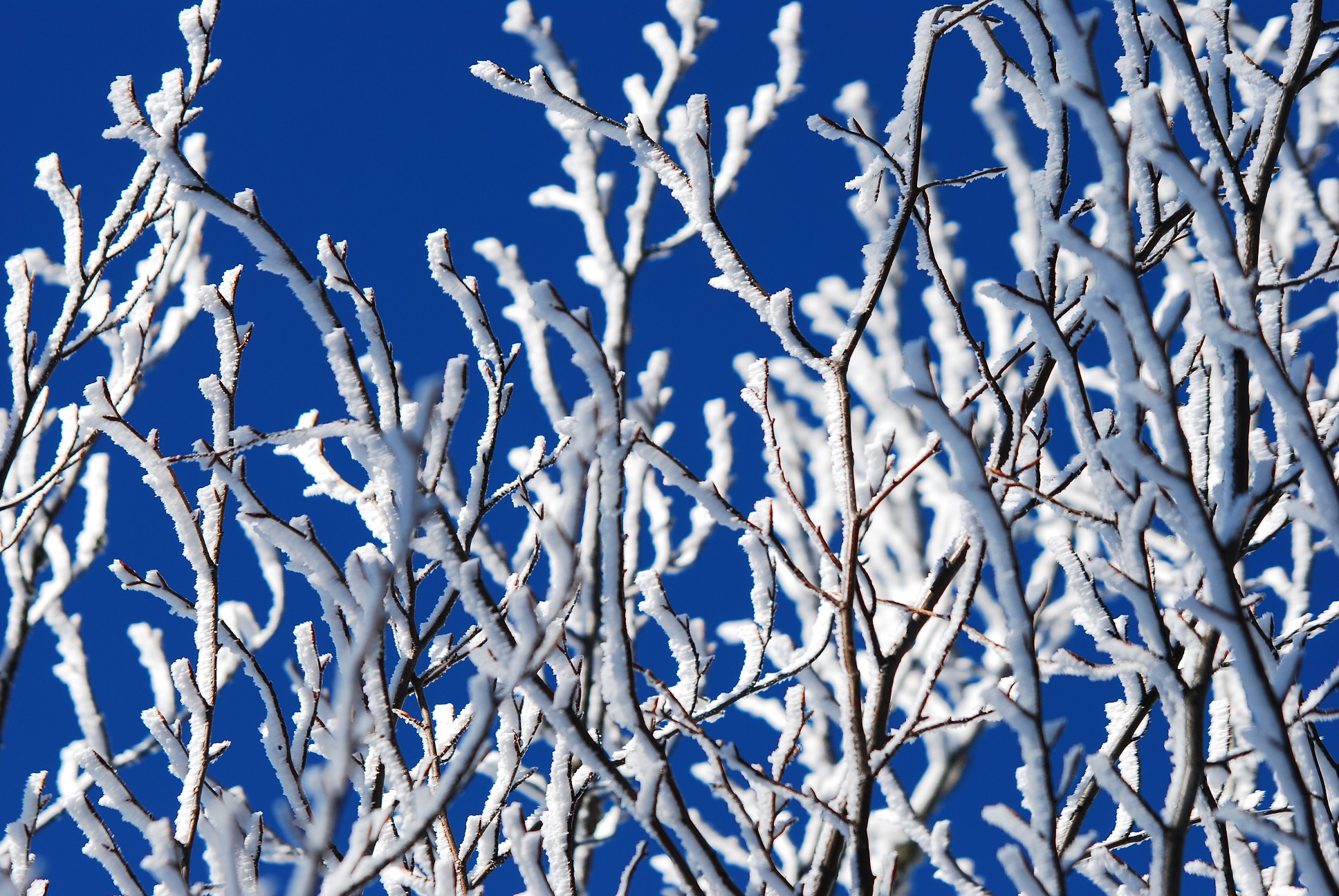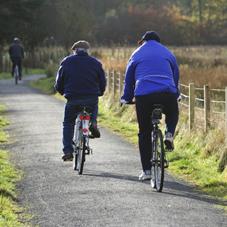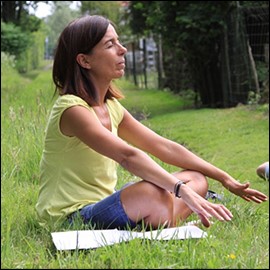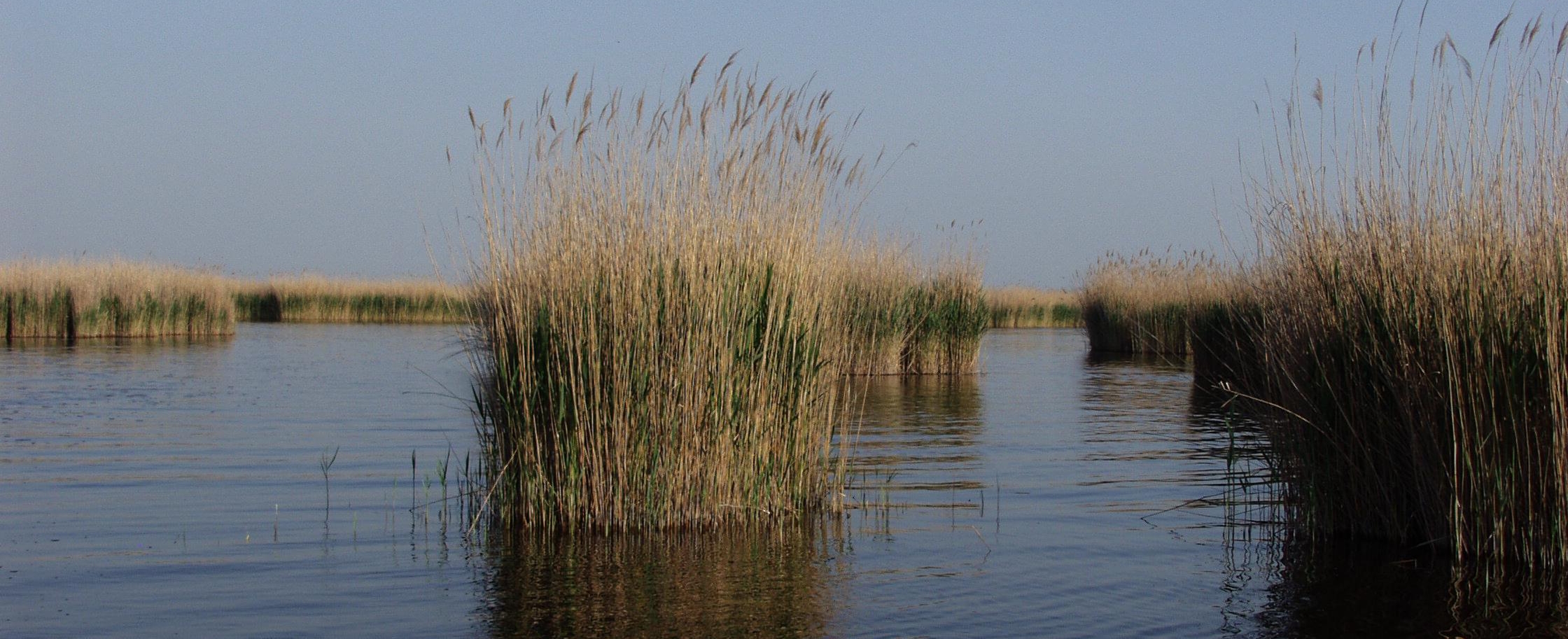Workshop – Management of Natura 2000 sites
Alluvial forest, Fertő-Hanság National Park © Gábor Takács
Management of Natura 2000 sites in Central and Eastern Europe
3-5 May, 2017, Fertőújlak, Hungary
EUROPARC Central and Eastern Europe (CEE) is organising a workshop for Protected Area professionals on the topic of Natura 2000 management, in partnership with the Fertő-Hanság National Park Directorate (Hungary).
Designation of Natura 2000 sites in countries of the East and Central European region was done more than 10 years ago. The relatively long time passed since then enables us to evaluate the process of designation and actions done for the conservation of Natura 2000 values.
Between 3-5 May 2017 Europarc CEE and the Fertő-Hanság National Park Directorate (Hungary) organise a workshop to review the management of Natura 2000 sites and summarize experiences.
Main topics discussed:
- Implementation of Natura 2000 in different countries
- Preparation of management plans for N20000 and their harmonisation with management plans for nationally designated areas, main challenges of the process and current state of play
- EU Agricultural subsidies vs Natura 2000 aims
Participants
The target audience involves mainly EUROPARC members, especially those of the CEE Section, as well as representatives of organisations dealing with management of Natura 2000 sites in the region.
Registration
To register please fill in and submit the application form to the following address: barna.csilla@fhnp.hu. Deadline for registrations on the 15th April.
Costs
Participation in this workshop is free of charge for 30 persons – expenses are covered by the EUROPARC Federation and the Hungarian Ministry for Agriculture – but you will have to cover your own travel expenses.
Due to limits of capacity, there is room for additional 10 people if they cover their own expenses (105 EUR/person).
More information and Programme
Please download the draft programme and get to know further information about location, accommodation and field trips.
If you need more information please contact Gábor Takács – takacs.gabor@fhnp.hu.
Good Bye to Karl Friedrich Sinner
We are sad to communicate that Mr. Karl Friedrich Sinner has recently passed away.
Karl Friedrich studied Forestry at the University of Munich and, along his career, he susbstantially contributed to the administration and preservation of forests and protected areas in Europe, being considered a bridge between forestry and nature conservation. From 1998, he was the former Director of NP Bayerischer Wald and current vice-chair of EUROPARC Deutschland.

Frozen branches in the Bavarian Forest National Park (DE) © Federico Minozzi
In 2002, he was honored with the Karl-Gayer medal for his commitment to a nature-friendly silviculture by the School of Forest Science and Resource Management, Technical University of Munich. Later on in 2011, after his retirement, he was awarded with the Bavarian State Medal for Services to the environment.
Undoubtely, very shocking news for our EUROPARC network. From the directorate, we would like to send our warmest greetings to his family and friends.
Rest in peace Mr. Sinner.
EUROPARC Webinar – Natural benefits: Nature, Health and Protected Areas.
Natural benefits: Nature, Health and Protected Areas.
28th MArch 2017 from 14:00 to 15:15 CET (Central Europe Time)
Register Today
The important contribution that nature makes to human health and well-being has long been recognised. But it is only perhaps in the last few years that an evidence base has been established that is medically compelling. This evidence provides new opportunities for protected area and natural environment managers to develop new links with the health sector.
On this EUROPARC webinar, we will further explore how nature and human being interact and we will learn from the existing synergies between nature conservation and health agencies in Europe that work together towards the development of specific plans to keep people healthy through their interaction with parks.
The webinar will be presented by Pete Rawcliffe, Manager of People and Places Unit at the Scottish Natural Heritage, who will give an overview on how people interact, understand, care for, and benefit from protected areas. Pete is also a EUROPARC’s Council member and is involved in the development of the new Commission on Health and Protected Areas of the Federation.
After the introduction, we will have the opportunity to learn from two specific case studies:
 Case Study 1: “Our Natural Health Service”, by Bridget Finton.
Case Study 1: “Our Natural Health Service”, by Bridget Finton.
In Scotland, physical activity and health inequalities are high on the agenda. Building on the foundation of strong cross-sectoral policy recognition of the health benefits from nature and landscapes, Scottish Natural Heritage (SNH) is playing a lead role in the development of ‘Our Natural Health Service’. Working in partnership with a range of national and local organisations across the environment, transport, sport, education and health sectors, the initiative will deliver a step change in the contribution of the natural environment to health improvement.
Bridget Finton is a Policy and Advice Officer working on Scottish Natural Heritage’s health and participation agenda since 1993 and has been involved in a range of policy areas including countryside rangers, access rights and responsibilities. Bridget represented SNH at the 2014 IUCN World Parks Congress and presented a Scottish case study in the Healthy Parks Healthy People conference theme.
 Case Study 2: “Fitness, Nature & Well-being”, by Mélissa Desbois.
Case Study 2: “Fitness, Nature & Well-being”, by Mélissa Desbois.
The regional nature parks of the Nord Pas de Calais are working on a collaborative project in the field of outdoor sport and health together with the Regional Institute for Well-being, Medicine and Sport and the Mutualité Française (Health Insurance Fund). It involves countering the trend towards sedentary lifestyles and sets a range of challenges for people to undertake a variety of physical activities outdoors in the natural environments of the parks.
Mélissa Desboiss is Project Manager at Espaces Naturels Regionaux (ENRx), which is a regional federation conformed by the Nord-Pas de Calais Regional Council and 3 Regional nature parks.
How to join?
TransParcNet Meeting 2017 – Registrations are now open!
Hiking in Triglav National Park (SI) © Triglav National Park Authority
Ecoregion Julian Alps (Prealpi Giulie Regional Nature Park, IT and Triglav National Park, SI)
This year the European transboundary parks community will meet from 6th to 9th June to discuss climate change in cross-border protected areas at the 9th TransParcNet meeting “Changing climate – changing parks”.
The meeting will take place in Trenta in the Transboundary Ecoregion Julian Alps, composed of Prealpi Giulie Nature Park (IT) and Triglav National Park (SI).
This year’s meeting will focus on climate change effects, solutions for adaptation to those and examples of climate change mitigation from transboundary protected areas across Europe.
The climate is changing, bringing changes that affect the life of every being on earth. The air we breathe, the water we drink, the food we crop, they all depend on the quality of our ecosystems. Climate change isn’t a matter of single countries. Therefore cross-border protected areas, cooperating on environmental topics regardless of national boundaries, are at the forefront of tackling that issue together.
From the mountain tops to river basins there is a huge variety of cross-border protected areas. As diverse as they are in their nature, are their challenges, approaches and solutions towards climate change. Your contribution and experiences concerning climate change and related adaptation and mitigation strategies are very welcome.
Registration is open and on-line registration, including reservation of accommodation, is available HERE. Deadline for registration is 21st April 2017.
Programme
Tuesday, 6th June
14.00 Arrival, registration in the Triglav National Park Information Centre Dom Trenta, accommodation
17.00 Opening at Triglav National Park Information Centre Dom Trenta
- Short welcome by heads of the Transboundary Ecoregion Julian Alps
- Welcome by dr. Igor Šoltes, member of European Parliament, host parks and EUROPARC
- Introductory presentation of the Transboundary Ecoregion Julian Alps
- Short visit to Dom Trenta
19.00 Dinner Buffet of typical products from transboundary parks across Europe and come-together in the Triglav National Park Information Centre Dom Trenta
Wednesday, 7th June – Plenary session day
9.00 Presentation of the day (Mr. Marko Pretner, Triglav National Park)
9.15 Welcome
- Mr. Franco Iacop, president of the Council of Friuli Venezia Giulia (tbc)
- Mr. Daniel Krivec, member of Slovenian parliament
9.30 Session I – Changing climate, changing parks
- Changing climate – changing parks (Ms. Carol Ritchie, Executive Director EUROPARC Federation)
- Guidelines on Climate Change and N2000 (Representative of the European Commission, tbc)
- Climate change in the Ecoregion Julian Alps (Mr. Renato Roberto Colucci (CNR Trieste), Ms. Tanja Menegalija)
10.30 – 11.00 coffee break
11.00 Session II – Strategies to change
- CLIMAPARKS – A project on monitoring and study the effects of climate change on biodiversity (Mr. Andrej Arih, Triglav National Park)
- Danube Parks/ICPDR – Climate change adaptation strategy for the Danube Basin (Representative of Danube Parks/ICPDR, tbc)
12.30 – 13.30 Lunch break
13.30 – 15.00 Short walk on Soča Trail
15.00 – 15.30 Coffee break
15.30 Session III – Changing parks: sustainable measures for the future
- Towards a more sustainable tourism in the Julian Alps: Application of the European Charter for Sustainable Tourism in a transboundary area (Ms. Mojca Smolej, Triglav National Park)
- Creation of sustainable public transport in the region of two National Parks (Representative of Saxon-Bohemian Switzerland)
17.00 Conclusions of the day
17.30 Results and follow up of the Transboundary Strategy Planning Meeting in Regensburg
19.00 Dinner in the local Pub and invitation to TransParcNet meeting 2018
Thursday, 8th June – Excursion day
9.00 Departure of the bus for both excursions to the Ecoregion Julian Alps
- Excursion 1: Venzone (please see detailed description in programme for download)
- Excursion 2: Mt Canin / Kanin (please see detailed description in programme for download)
17.30 Coffee break in Park Visitor Center of Prato di Resia (IT)
18.00 Visit of Park Visitor Center of Prato
19.30 Dinner in Hotel Carnia
22.00 Departure to accommodation in Trenta
Information on participation and travel
Venue
Conference venue and starting point for the excursions will be the Triglav National Park Dom Trenta, Na Logu, Trenta. See also the map at: https://www.google.de/maps/search/Dom+Trenta+Triglav/@46.3798538,13.7232541,12z
Travel
By airplane
- Airport »Toneta Pučnika«, Brnik – Slovenia
- Airport »Marco Polo«, Venice, Italy
- Airport »Antonio Canova« Treviso, Venice, Italy
Shuttles will be organized from Ljubljana Brnik Airport, Udine train station or Jesenice train station.
By train
Trains are available to Udine (I) and to Villach (A), with good connection to Jesenice (SI)
By car
You need to reach Karavanke Tunel or Pass Koren, then you need to take direction to Kranjska Gora and over pass Vršič to Trenta, to Triglav National Park Information center Dom Trenta.
If you come from the South you have to reach Udine and then follow direction to Cividale del Friuli and Kobarid / Caporetto. From here take the direction to Bovec and Trenta.
Accommodation
The rooms are pre-booked. Because the venue is in a small village we can offer only 18 single bed rooms. All other accommodation is only possible in double rooms or apartments for two or three people. For booking and more information see the registration part. All accommodation is in the National Park Center or National Park House and in private accommodation, all in walking distance from the venue.
Costs
Currency – EURO
Transboundary meeting fee per participant is 150 EUR (VAT incl.).
Costs for accommodation per night per person with tourist tax:
| Single room | 31,26 EUR |
| Double room | 22,26 EUR |
| AP for 2 person | 26,26 EUR |
| AP for 3 person | 21,26 EUR |
Registration
The on-line registration, including reservation of accommodation, is available HERE.
The venue is in a small village and there is limited number of accommodation. Therefore we need to limit the number of participants to 50 people. Hence participants from transboundary areas will be given priority. Register soon!
Contacts
For logistic issues, please contact the Triglav National Park Information center Dom Trenta dom-tnp.trenta@tnp.gov.si or call the conference hotline +386 5 3889330.
For thematic questions please contact Stefano Santi (Parco naturale Prealpi Giulie) at stefano.santi@parcoprealpigiulie.it or Mojca Smolej (Triglav National Park) at mojca.smolej@tnp.gov.si
